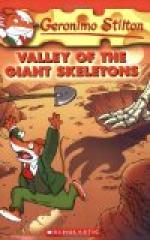Following this exasperating but illuminating conversation with Shirley Sumner over the telephone, Bryce Cardigan was a distressed and badly worried man. However, Bryce was a communicant of a very simple faith—to wit, that one is never whipped till one is counted out, and the first shock of Shirley’s discovery having passed, he wasted no time in vain repinings but straightway set himself to scheme a way out of his dilemma.
For an hour he sat slouched in his chair, chin on breast, the while he reviewed every angle of the situation.
He found it impossible, however, to dissociate the business from the personal aspects of his relations with Shirley, and he recalled that she had the very best of reasons for placing their relations on a business basis rather than a sentimental one. He had played a part in their little drama which he knew must have baffled and infuriated her. More, had she, in those delightful few days of their early acquaintance, formed for him a sentiment somewhat stronger than friendship (he did not flatter himself that this was so), he could understand her attitude toward him as that of the woman scorned. For the present, however, it was all a profound and disturbing mystery, and after an hour of futile concentration there came to Bryce the old childish impulse to go to his father with his troubles. That sturdy old soul, freed from the hot passions of youth, its impetuosity and its proneness to consider cause rather than effect, had weathered too many storms in his day to permit the present one to benumb his brain as it had his son’s.
“He will be able to think without having his thoughts blotted out by a woman’s face,” Bryce soliloquized. “He’s like one of his own big redwood trees; his head is always above the storm.”
Straightway Bryce left the office and went home to the old house on the knoll. John Cardigan was sitting on the veranda, and from a stand beside him George Sea Otter entertained him with a phonograph selection—“The Suwanee River,” sung by a male quartet. As the gate clicked, John raised his head; then as Bryce’s quick step spurned the cement walk up the little old-fashioned garden, he rose and stood with one hand outstretched and trembling a little. He could not see, but with the intuition of the blind, he knew.
“What is it, son?” he demanded gently as Bryce came up the low steps. “George, choke that contraption off,”
Bryce took his father’s hand. “I’m in trouble, John Cardigan,” he said simply, “and I’m not big enough to handle it alone.”
The leonine old man smiled, and his smile had all the sweetness of a benediction. His boy was in trouble and had come to him. Good! Then he would not fail him. “Sit down, son, and tell the old man all about it. Begin at the beginning and let me have all the angles of the angle.”




